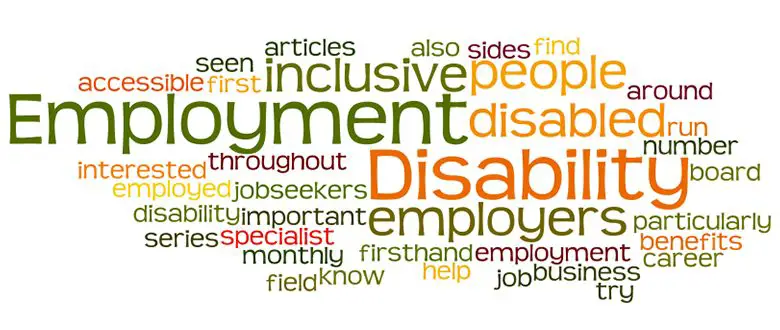
Employment and disability: why you are worth employing
Jane Hatton, who manages Evenbreak, a not-for-profit job board run by disabled people for disabled people, publishes her monthly article on the subject of employment and diversity. This month she looks at why disabled people are worth employing – employers, listen up.


This first article is a reminder of the real value that disabled people bring to the workplace. There have been recent mutterings about disabled people being ‘not worth’ the minimum wage, which sends out the opposite message to my own view – that disabled employees are a positive asset to any workplace. In fact, I do put my money where my mouth is, and I only employ disabled people within my own business. It’s not a decision I have ever regretted – they are all very talented, conscientious and loyal people. I may introduce them to you in future articles.
My own positive experience of employing disabled people is far from unusual. Companies who have employed disabled people before are almost always keen to do so again. Those that haven’t can be wary of employing us. They fear that we will be unproductive, have high levels of sickness absence, we might leave if we can’t cope with the work, and we might be a health and safety hazard. And we might cost them a fortune in providing “reasonable adjustments”. I can understand why these fears might put employers off us, if these fears were based on reality.
However, they are just myths. Much research has been carried out around disability and employment over the years and in different countries, and they all come up with similar findings*. On average:
- disabled employees are just as productive as our non-disabled colleagues
- disabled employees have less time off sick
- disabled employees have fewer workplace accidents
- disabled people stay in our jobs longer
- disabled people bring additional qualities (such as persistence, problem-solving, innovation, determination, creativity) that we have had to develop to navigate our way around a world not designed for us
- disabled people bring inside intelligence into the “purple” market – over 10 million disabled people spend up to £80 billion a year in the UK
- people prefer to buy their goods and services from companies who employ disabled people
- people prefer to work for organisations which are inclusive and accessible and look after their staff – so they attract the best talent.
On that basis, employers should be paying a premium for disabled staff, not paying us less!
So, if you are an employer, and you are looking for productive, loyal, creative and talented staff then you need to consider the talent pool of disabled people. If you are a disabled employee or jobseeker, then I hope you recognise your true worth! We will be exploring this further in future articles.
*If you would like the sources of this research, please email me at janeh@evenbreak.co.uk and I will be happy to send it to you.
Check out…
• News round-up, week ending 31 October
• Inclusive advertising: we’re starting to see change
• Disability behind and in front of the camera
Get in touch by messaging us on Facebook, tweeting us @DHorizons, emailing us at editor@disabilityhorizons.com or leaving your comments below.
